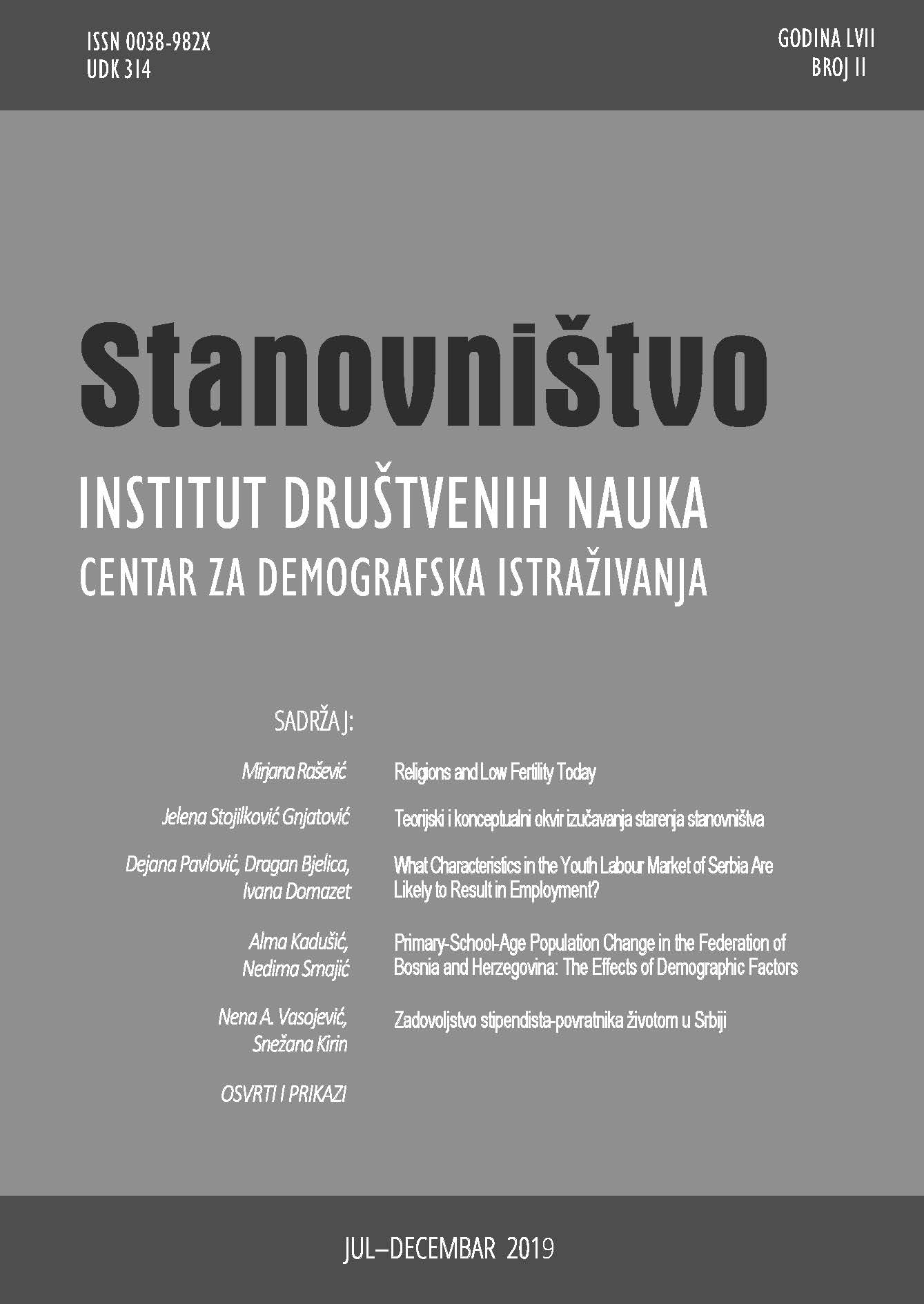Teorijski i konceptualni okvir izučavanja starenja stanovništva
Theoretical and Conceptual Framework for Population Ageing Research
Author(s): Jelena N. Stojilković GnjatovićSubject(s): Demography and human biology, Gerontology
Published by: Институт друштвених наука
Keywords: population ageing; theoretical framework; demographic transitions; cohort; life expectancy
Summary/Abstract: The ageing of the population is a contem-porary phenomenon, but its foundations were laid decades ago. Changing age structures and the consequent demographic ageing has only recently become the subject of theoretical (re)consideration, since the theory of demographic transition only values fertility and mortality trajectories. The emergence of “new” demography takes into account the momentum created by the previous trends in population dynamics and explains the future rejuvenation or ageing of the population. The importance of inherited age structure can be illustrated using an approach that represents distorted cohort flows, showing that baby booms and baby busts can play a crucial role in the future ageing of the population. While in the past it was fertili-ty that predominantly affected age struc-ture, recent research has revealed that changes in life expectancy are becoming a more prominent factor in shaping ex-pected population ageing trends. The general theory of population ageing would have to consider the possible compression of morbidity, dynamic equilibrium, or the expansion of morbidity, since the future course of (healthy) life expectancy is determining the scope of the old and frag-ile population. The status of theory in demography has long been problematic, since the “grandiose” theory of demo-graphic transition had to be reevaluated. Modern approaches apply more flexible theoretical frameworks to explain con-temporary demographic changes and provide a conceptual background. As such, the important paradigm for the demography of ageing should be the prospective paradigm, which uses information about the longevity of the population and transposes it to population ageing research. The theory of population metabolism seems to adequately define why population ageing is important for cohorts and generation change, especially in cases where distorted cohort flows create prominent cohort oscillation. The need to create adequate policies for changing age composition morphology is highlighted in the domain of institutional adaptation, where the concept of population balance can provide the appropriate framework. Also, as life events tend to take place more often at certain points in the life cycle – for exam-ple during adulthood and entering old age – the idea of population densities should be further explored.
Journal: Stanovništvo
- Issue Year: 57/2019
- Issue No: 2
- Page Range: 13-33
- Page Count: 21
- Language: Serbian

